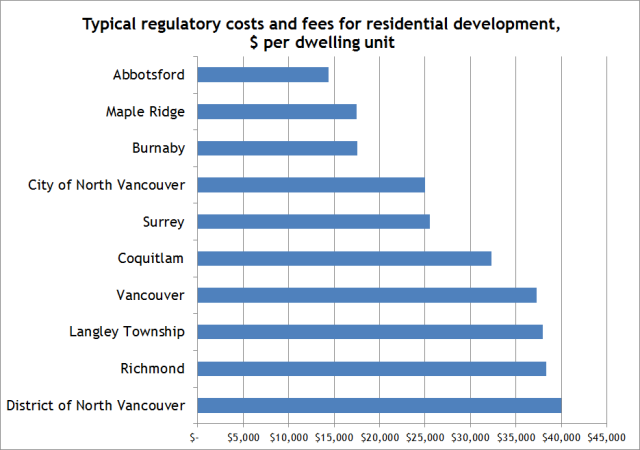B.C. Budget insight: Vancouver’s affordability concerns need municipal attention
In an effort to make housing more affordable in Greater Vancouver, British Columbia’s latest provincial budget exempts newly-built homes worth up to $750,000 from the property transfer tax. This change could cut the tax bill on certain home sales by as much as $13,000, and will be financed by hiking the property transfer tax paid on property value above $2 million from two to three per cent.
This policy would, at the margin, be expected to encourage new housing construction, but probably not on the scale needed by Greater Vancouver, which is expected to add more than 35,000 new residents each year. Any serious effort to mitigate Vancouver’s affordability concerns needs to involve municipalities.
The Lower Mainland’s cities are the gatekeepers to the region’s housing market. Cities control zoning codes, dictate the uncertainty and complexity of the permitting process, and charge the lion’s share of fees attached to new homes. A recent study found that regulatory costs in Vancouver add up to more than $37,000 for a typical new home (see chart below), and regulatory approvals generally take well over a year. Policies aiming to improve the housing supply without rethinking municipal impediments are fighting an uphill battle.

And while addressing affordability requires that cities re-think their land-use regulations, property transfer taxes should not be exempt from scrutiny. In fact, current economic research suggests that property transfer taxes should be done away with completely; they can discourage people from moving to be closer to a new job or to have more space for a growing family. Revenue brought in by the property transfer tax can easily come from standard property taxes, which produce less economic drag.
Regardless of their inefficiency, adjusting provincial tax rates is unlikely to deliver the increased housing supply Greater Vancouver needs. The region’s affordability problems stem in large part from restrictions to urban growth. And while Vancouver’s natural boundaries—the region’s iconic mountains and ocean—are here to stay, government policies that impede growth can certainly change. Without these restrictions, growing demand for Vancouver real estate might not translate into such high prices.
Authors:
Subscribe to the Fraser Institute
Get the latest news from the Fraser Institute on the latest research studies, news and events.

